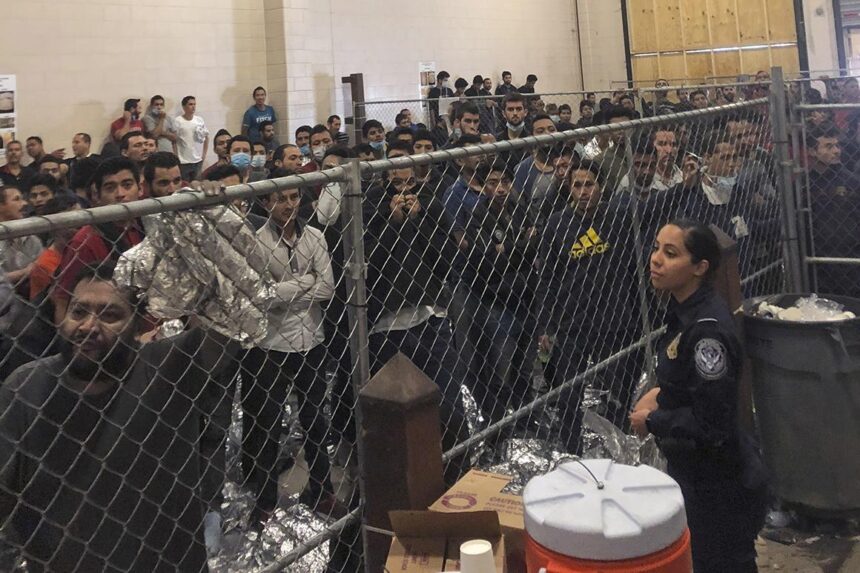In a shocking revelation that has drawn widespread condemnation, a recent lawsuit alleges that immigrants detained by U.S. Immigration and Customs Enforcement (ICE) in San Francisco are being subjected to inhumane conditions, including being held in freezing cold cells. The complaint, filed by legal advocates on behalf of the detainees, claims that these harsh conditions not only violate the detainees’ rights but also pose serious risks to their health and well-being. As the legal battle unfolds, the case has sparked a renewed debate over the treatment of individuals in ICE custody and has raised questions about the broader implications of immigration enforcement practices in the United States. This article delves into the details of the lawsuit, the experiences of the detainees, and the response from ICE and local authorities.
Concerns Over Health Risks for ICE Detainees in Freezing Conditions
Recent allegations have raised serious concerns about the treatment of detainees held by U.S. Immigration and Customs Enforcement (ICE) in San Francisco, particularly regarding the conditions within their cells. Reports indicate that many detainees are subjected to freezing temperatures, which pose significant health risks. Medical experts express worry that such extreme conditions could lead to a range of health issues, including severe respiratory infections, hypothermia, and exacerbated chronic illnesses. Detainees have described the air in these cells as uncomfortably cold, leading to discomfort and potential health deterioration.
Legal advocates are pointing to the need for urgent reforms and humane treatment of detainees. They are emphasizing the following key points in their argument:
- Constitutional Rights: The treatment of detainees may violate their rights under U.S. law.
- Health Risks: Prolonged exposure to cold can exacerbate existing health issues.
- Psychological Impact: Freezing conditions can lead to increased anxiety and depression among detainees.
As the lawsuit unfolds, the broader implications for ICE facilities across the nation are being closely monitored, with calls for transparency on the conditions faced by those in detention.
Legal Implications of San Francisco’s Treatment of Immigration Detainees
The treatment of immigration detainees in San Francisco has raised significant legal concerns, particularly in light of recent allegations about inhumane conditions. Reports of detainees being held in freezing cells can lead to potential violations of both state and federal laws, including the Eighth Amendment, which prohibits cruel and unusual punishment. Advocacy groups argue that the substandard conditions not only affect the mental and physical health of detainees but also undermine the fundamental rights guaranteed to all individuals, regardless of their immigration status. The implications are profound, as they could trigger legal challenges and push for reforms within the detention system.
Additionally, the local government may face liability issues stemming from these reported practices. If the allegations hold true, the city could be sued for failing to uphold the constitutional and human rights of detainees, exposing taxpayers to potential financial repercussions. Some of the key legal considerations include:
- Negligence Claims: The duty of care owed to detainees.
- Constitutional Violations: Potential breaches of the Eighth Amendment.
- Administrative Remedies: Possible violations of state regulations regarding detention conditions.
| Legal Concern | Description |
|---|---|
| Negligence | Failure to provide adequate living conditions for detainees. |
| Constitutional Rights | Violation of detainees’ rights under the Eighth Amendment. |
| State Regulations | Non-compliance with established detention facility standards. |
Calls for Policy Reforms to Ensure Humane Treatment in Detention Facilities
Recent allegations have emerged, suggesting that detainees at the Immigration and Customs Enforcement (ICE) facility in San Francisco are being subjected to inhumane conditions, particularly in chilling cells where temperatures drop significantly. Advocates are calling for immediate policy reforms to address these issues and ensure that detention facilities comply with standards reflecting humane treatment. Among the reforms suggested are:
- Regulations on Cell Temperature: Establishing minimum temperature standards to protect detainees from extreme cold.
- Increased Oversight: Implementing regular inspections by independent bodies to monitor conditions within facilities.
- Access to Basic Amenities: Ensuring detainees have access to adequate clothing, bedding, and hygiene products to cope with harsh conditions.
Legal experts argue that the plight of detainees highlights broader systemic failures within the immigration detention system. The current framework allows for excessive discretion in managing living conditions, often to the detriment of those held. Advocates emphasize the need for a shift towards a more compassionate system through comprehensive reforms that prioritize the dignity and rights of individuals in custody. A summary of these proposed reforms includes:
| Reform Area | Proposed Changes |
|---|---|
| Living Conditions | Set temperature regulations and guarantee basic comforts. |
| Oversight | Regular inspections by independent entities for transparency. |
| Legal Protections | Strengthening detainee rights and grievance mechanisms. |
The Conclusion
In conclusion, the allegations surrounding the treatment of ICE detainees in San Francisco underline a growing concern regarding the conditions of confinement and the rights of individuals in immigration custody. The lawsuit, aimed at addressing claims of freezing cells and inadequate living conditions, highlights the urgent need for systemic reforms within immigration enforcement practices. As the case unfolds, it remains to be seen how these legal challenges will impact ICE policies and the rights of detainees nationwide. Advocates for immigration reform continue to call for improvements that ensure humane treatment, as the story of those behind bars in San Francisco resonates with broader discussions on justice and human rights in the United States. The outcome of this lawsuit may very well shape the future landscape of immigration detention, making it a critical case to follow in the months to come.









